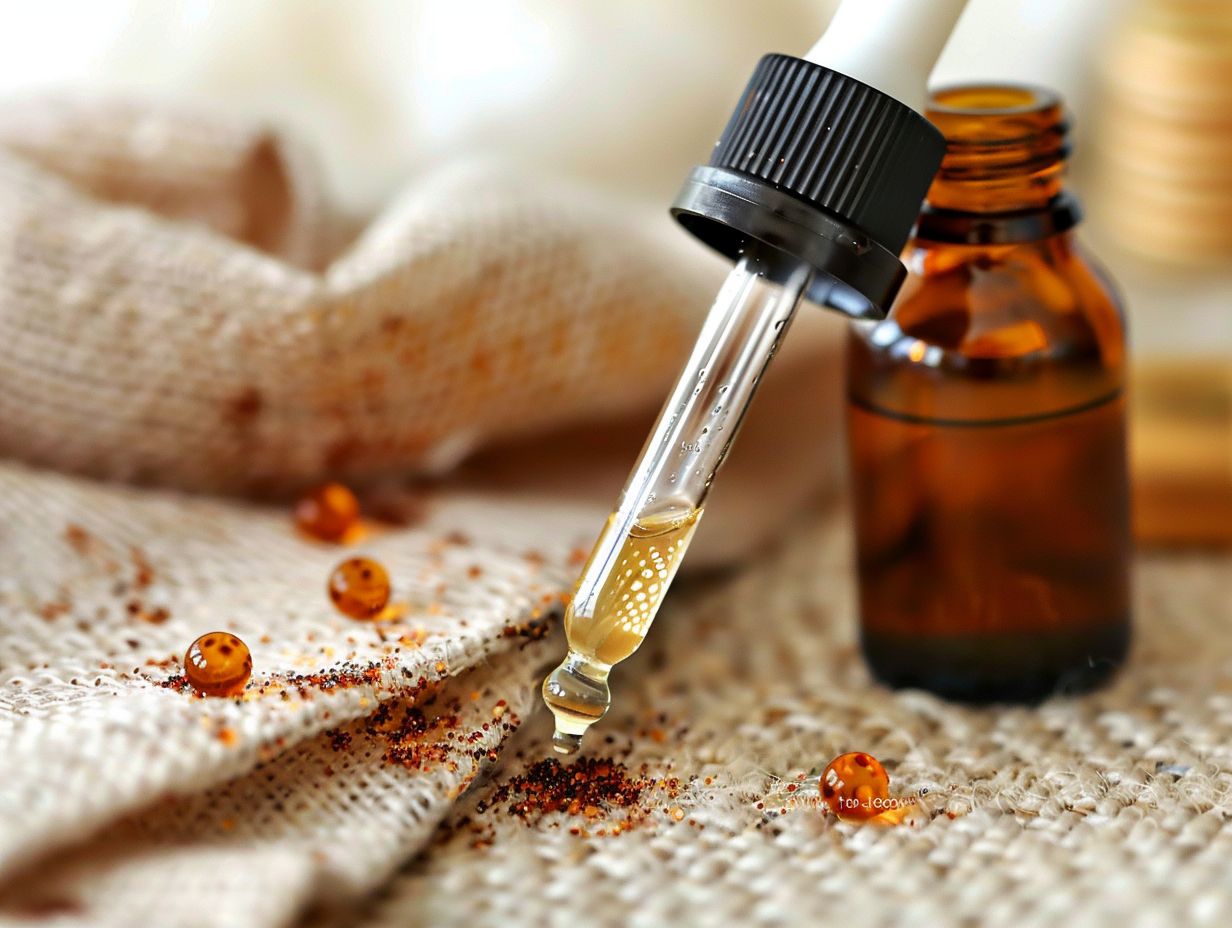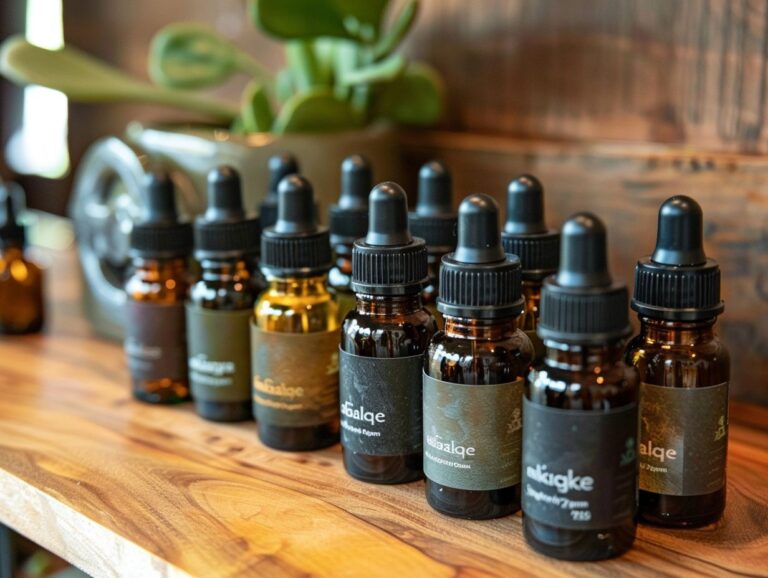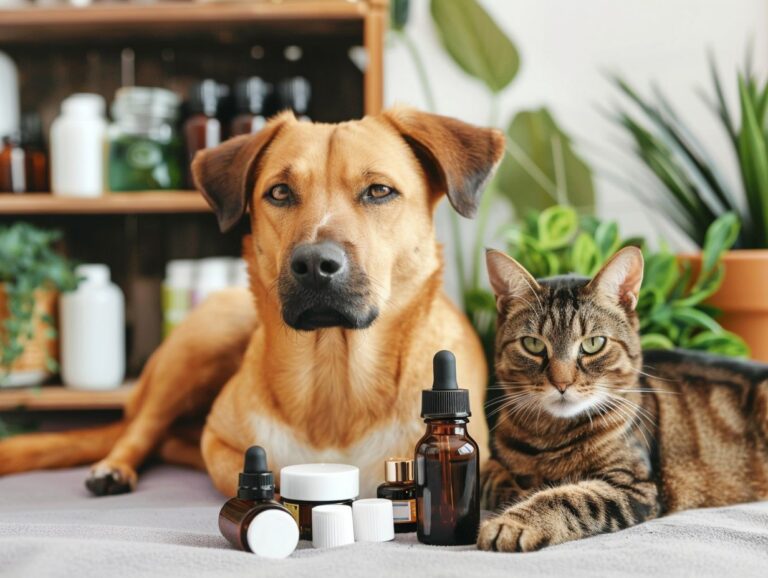Can Essential Oils Treat Ringworm
Ringworm, a common fungal infection that affects the skin, is not caused by worms as the name suggests.
This article will explore the causes, symptoms, and treatment options for ringworm.
One popular natural remedy for ringworm is essential oils, known for their antifungal properties and soothing effects.
We will discuss the benefits of using essential oils for treating ringworm and highlight which specific oils are most effective.
If you’re looking for a natural solution to ringworm, keep reading to learn more about essential oils.
Key Takeaways:
What is Ringworm?
Ringworm is a common fungal infection that affects the skin, leading to red, itchy, circular rashes.
This contagious condition is not caused by a worm, as the name suggests, but by dermatophyte fungi that thrive in warm, moist environments. The rashes caused by ringworm are usually distinctively shaped, with a raised, red outer border and a clearer center resembling a ring. These fungi feed on keratin, a protein found in the skin, hair, and nails, leading to the characteristic symptoms.
What Causes Ringworm?
Ringworm is caused by a group of fungi known as dermatophytes that thrive in warm, moist environments. These fungi feed on keratin, a protein found in the skin, hair, and nails, leading to the characteristic ring-shaped rash.
When the dermatophytes invade the superficial layers of the skin, they trigger an immune response, leading to the appearance of the ringworm rash. Factors such as excessive sweating, poor ventilation, and sharing personal items like towels or clothing can contribute to the spread of fungal infections.
Is Ringworm Contagious?
Ringworm is highly contagious and can spread through direct contact with an infected person or animal, or by touching contaminated items such as towels or clothing.
Ringworm, despite its misleading name, is not caused by a worm but by a fungus called dermatophytes that thrive in warm and moist environments. Once exposed, the infection can quickly take hold, leading to characteristic red, scaly patches on the skin.
Preventive measures play a crucial role in containing the spread of ringworm.
- Regularly washing hands with soap and water can significantly reduce the risk of transmission.
- Avoiding sharing personal items like clothing, towels, and combs with potentially infected individuals is essential.
- Properly treating infected pets to prevent human transmission is also important.
Ensuring proper hygiene practices can go a long way in preventing the spread of ringworm. Prompt treatment of infections with antifungal creams or medications prescribed by a healthcare provider is vital. Maintaining clean living environments, washing bedding and clothing frequently in hot water, and disinfecting surfaces regularly can help eradicate the fungus and minimize the risk of reinfection.
What Are the Symptoms of Ringworm?
The symptoms of ringworm include red, scaly patches on the skin that may itch or burn. The affected area often forms a circle or ring shape, hence the name ‘ringworm’.
These patches are characterized by defined edges that are slightly raised and may be more pronounced on the outside of the ring. In some cases, the center of the patch may appear clear or scaly. The ringworm infection can occur on various parts of the body, such as the scalp, feet (athlete’s foot), groin (jock itch), or body. When ringworm affects the scalp, it can result in hair loss in the affected areas.
Does Ringworm Itch?
Yes, ringworm typically causes itching, which can vary from mild to severe depending on the individual’s sensitivity and the location of the infection.
Itching associated with ringworm is a common symptom that arises due to the body’s immune response to the fungal infection. The persistent itching can lead to inflammation and redness, further impacting the overall health of the skin. Scratching the affected areas can worsen the condition by spreading the infection to other parts of the body.
To alleviate the discomfort caused by itching, individuals can opt for skin-soothing measures such as applying over-the-counter antifungal creams or ointments recommended by dermatologists. Keeping the skin clean and dry, wearing loose-fitting clothing, and avoiding sharing personal items can help prevent the spread of ringworm and minimize itching.
Does Ringworm Cause Hair Loss?
In some cases, ringworm infections on the scalp can lead to hair loss, particularly if the condition is left untreated for a prolonged period.
When ringworm affects the scalp, it can cause **irritation** and inflammation in the affected areas, leading to weakening and breakage of the hair follicles. Over time, this can result in patchy hair loss and thinning of the hair, which can be distressing for individuals experiencing these symptoms.
The presence of ringworm can create a cycle of itching and scratching, further damaging the hair and worsening the condition. If left unaddressed, the infection can spread and potentially lead to more severe complications.
Timely treatment is crucial in managing ringworm on the scalp to prevent further hair loss and to promote the healing process. Consulting a healthcare professional for an accurate diagnosis and appropriate treatment plan is essential to address the infection effectively.
Does Ringworm Cause Blisters?
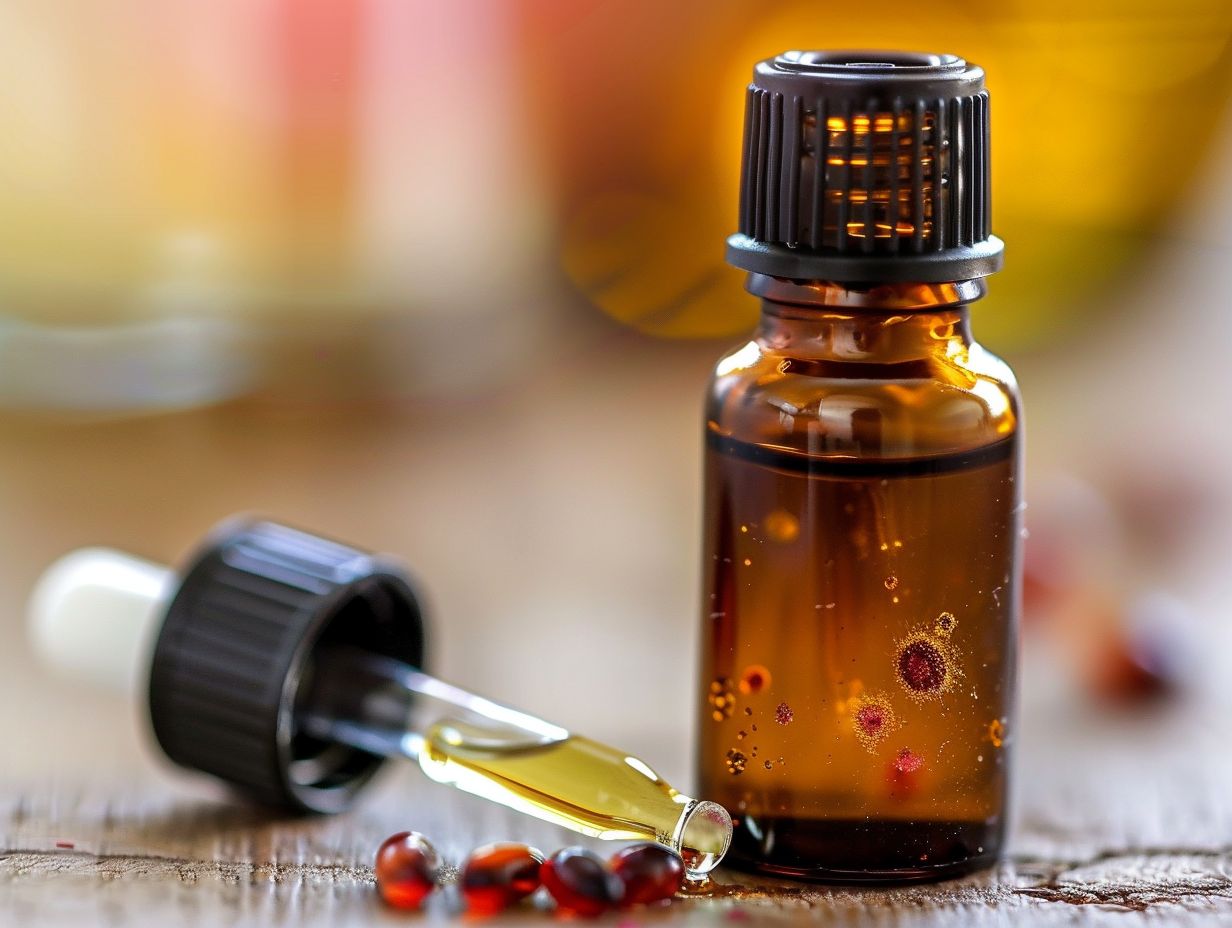
It’s important to understand that ringworm, despite its name, is not caused by a worm but rather a fungal infection that affects the skin, hair, or nails. This infection can result in red, itchy patches that resemble a ring or circular shape, hence the term ‘ringworm.’
When these itchy patches lead to scratching, the skin can become susceptible to bacterial infections. This secondary infection can exacerbate the symptoms, causing blisters to form as the body responds to the invading bacteria.
Therefore, it is crucial to avoid scratching the affected areas to prevent complications such as blister formation.
Proper hygiene practices play a significant role in managing ringworm. Regularly washing and drying the skin, wearing clean clothes, and avoiding sharing personal items can help reduce the risk of spreading the infection and minimize the chances of developing blisters due to bacterial infections.
How is Ringworm Diagnosed?
Ringworm is often diagnosed based on its characteristic appearance and the presenting symptoms. A healthcare provider may perform a visual examination of the affected skin and may also recommend tests such as skin scrapings or cultures to confirm the diagnosis.
Visual examination involves looking for the typical ring-shaped rash with raised edges and clearer skin in the center, which resembles a worm. The healthcare provider may use a special light called a Wood’s lamp to examine the affected area, as some types of ringworm glow under this light.
Along with the physical examination, skin scrapings or cultures of the skin lesions can help identify the specific fungus causing the infection. Medical professionals play a critical role in interpreting the test results accurately to confirm the presence of ringworm and recommend appropriate treatment.
What Are the Treatment Options for Ringworm?
Treatment options for ringworm typically involve antifungal medications that can be applied topically to the affected skin. Over-the-counter creams and ointments may also be recommended by healthcare providers to help manage the infection.
For more severe cases of ringworm, oral medications such as griseofulvin, terbinafine, or itraconazole may be prescribed to address the fungal infection from within the body. These systemic antifungals are usually taken for a few weeks to effectively clear the infection.
Along with medication, it is crucial to practice good skin hygiene to prevent the spread and recurrence of ringworm. Keeping the affected areas clean and dry, avoiding sharing personal items, and wearing loose-fitting clothing can all aid in the treatment process.
Antifungal Medications
Antifungal medications are often prescribed to combat ringworm infections. These may come in the form of creams, ointments, or oral medications, depending on the severity and location of the infection.
These medications work by targeting the fungus causing the infection, stopping its growth and effectively curing the condition. Oral medications are usually reserved for more severe cases or when the infection covers large areas of the body.
Creams and ointments are typically used for localized infections and are applied directly to the affected area. It is crucial to follow the prescribed dosage and duration to ensure the complete eradication of the infection.
If the symptoms persist or worsen despite using antifungal medications, it is essential to seek medical advice. Severe cases may require stronger prescription medications or alternative treatments to effectively eliminate the ringworm infection.
Over-the-Counter Creams
Over-the-counter creams containing antifungal agents can be effective in managing mild cases of ringworm. These topical treatments are readily available at pharmacies and can help alleviate symptoms and promote healing.
One of the key benefits of using these creams is the accessibility they offer. Unlike prescription medications, over-the-counter creams can be purchased without a doctor’s prescription, making them convenient for quick relief. Furthermore, these creams are often cost-effective alternatives to prescription treatments, making them an affordable option for those looking to treat ringworm without breaking the bank.
Proper application of the cream is essential for effective treatment. It is recommended to clean and dry the affected area before applying a thin layer of the cream, ensuring full coverage over the rash. Consistent use according to the product instructions is crucial to see improvement and prevent the spread of ringworm to other parts of the body.
Essential Oils
Essential oils have gained popularity as natural remedies for ringworm due to their antifungal properties and soothing effects on the skin.
When utilized in the treatment of ringworm, these oils work by inhibiting the growth of the fungi responsible for the infection, aiding in the restoration of healthy skin. Commonly used essential oils for ringworm include tea tree oil, lavender oil, and oregano oil, known for their potent antifungal qualities. Their application on the affected area, either through dilution with a carrier oil or in a diffuser, can help alleviate symptoms such as itching and redness, promoting the healing process.
What are the Benefits of Using Essential Oils for Ringworm?
Using essential oils for ringworm offers several benefits, including their natural antifungal properties, soothing and healing effects on the affected skin, and minimal risk of side effects compared to traditional medications.
Essential oils such as tea tree oil, lavender oil, and oregano oil are known for their potent antifungal properties, effectively combatting the fungal infection causing ringworm.
These oils can help soothe the itching and inflammation associated with ringworm, promoting faster healing of the affected skin.
One of the significant advantages of using essential oils is the reduced likelihood of adverse reactions commonly seen with synthetic medications, making them a safer and gentler alternative for treating ringworm.
Natural Antifungal Properties
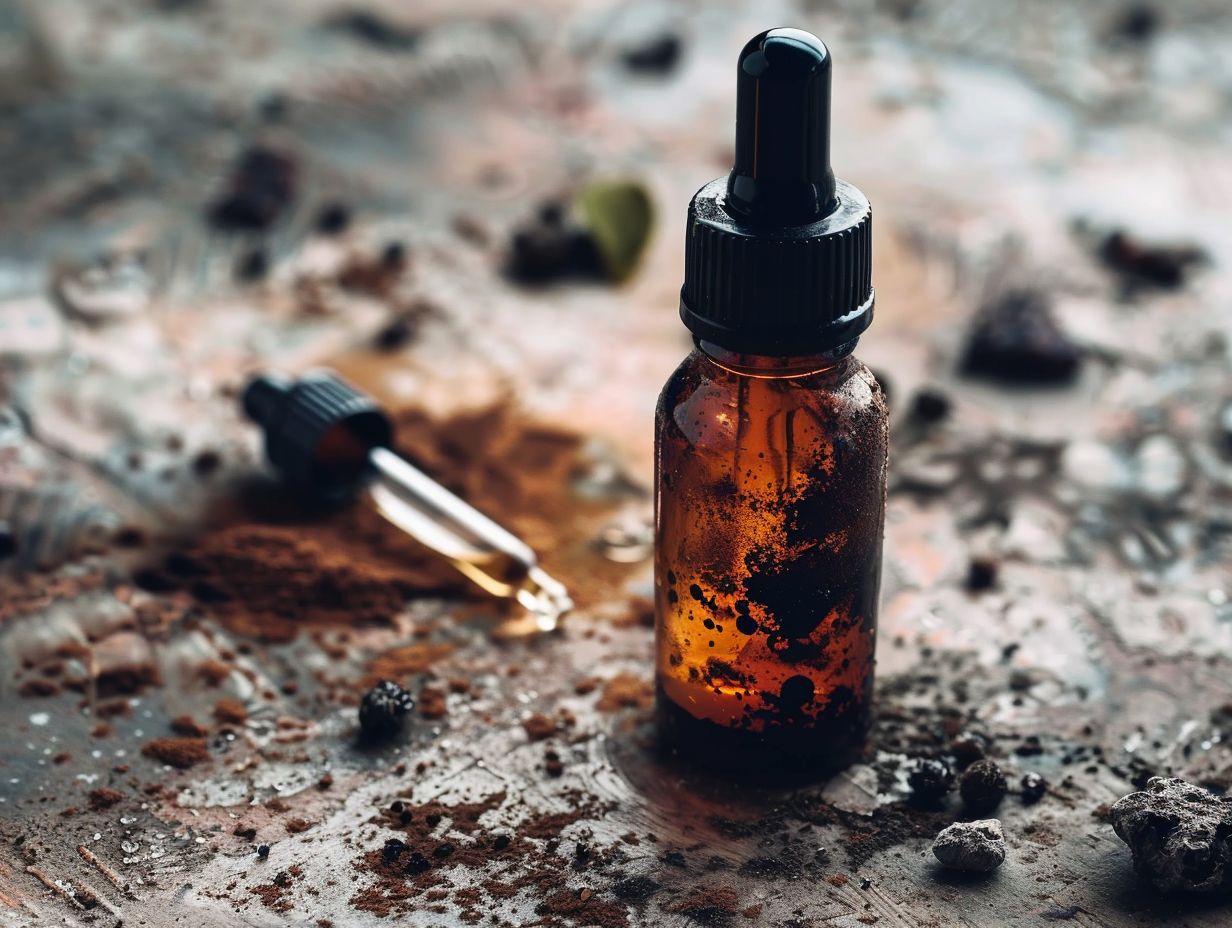
Specific essential oils like tea tree oil, lavender oil, and oregano oil have demonstrated remarkable efficacy in fighting off various strains of fungi, including those causing ringworm. These oils contain active compounds such as terpenes and phenols that disrupt the fungal cell membranes, leading to their destruction.
Furthermore, the natural ingredients in essential oils possess anti-inflammatory and soothing properties, aiding in reducing itching and inflammation associated with ringworm infections. By applying these oils topically, individuals not only target the root cause of the infection but also support the overall healing process of the affected skin.
Soothing and Healing Effects
Essential oils such as lavender oil offer soothing and healing effects when applied to the affected skin. These oils can reduce inflammation, alleviate itching, and promote the regeneration of healthy skin cells.
In terms of skin health, incorporating lavender oil into your skincare routine can be incredibly beneficial. The antimicrobial properties of lavender oil can help combat bacteria and fungi that may contribute to skin conditions like ringworm. The calming aroma of lavender oil can have a relaxing effect on both the mind and body, reducing stress levels that may exacerbate skin issues.
To promote recovery from ringworm infections, dilute lavender oil with a carrier oil and apply it topically to the affected area for its healing and antifungal properties.
Fewer Side Effects
One of the advantages of using essential oils for ringworm treatment is their minimal risk of side effects compared to conventional medications. Natural oils like coconut oil can nourish the skin without harsh chemicals.
Essential oils are derived from plants through distillation or extraction, and their natural composition makes them gentle on the skin, reducing the likelihood of adverse reactions. The soothing properties of oils like tea tree oil and lavender can help alleviate itching and inflammation associated with ringworm, promoting healing.
These oils not only target the fungal infection but also moisturize and protect the skin, making them a versatile and holistic approach to treating ringworm. Their antifungal properties can inhibit the growth of the fungus responsible for ringworm, providing a safer alternative to traditional antifungal medications.
Which Essential Oils are Effective for Treating Ringworm?
Several essential oils have shown effectiveness in treating ringworm, with popular choices including tea tree oil, lavender oil, oregano oil, lemongrass oil, and thyme oil. These oils possess potent antimicrobial properties that can combat fungal infections.
Tea tree oil, known for its strong antifungal and antibacterial properties, can help alleviate ringworm symptoms and promote healing. Lavender oil offers soothing effects, reducing itchiness and inflammation associated with ringworm. Oregano oil’s powerful anti-inflammatory and antifungal properties can effectively target the ringworm fungus.
Lemongrass oil, with its antimicrobial properties, is effective in fighting the fungus responsible for ringworm infections. Thyme oil, rich in thymol, exhibits strong antifungal properties, making it a valuable remedy for combating ringworm.
Tea Tree Oil
Tea tree oil is renowned for its potent antifungal and antibacterial properties, making it a popular choice for treating ringworm. This essential oil can help alleviate symptoms, reduce inflammation, and promote the healing of affected skin.
When applied topically, tea tree oil works by attacking the fungi responsible for ringworm, effectively inhibiting their growth and speeding up the recovery process. Its antimicrobial properties not only combat the infection but also provide a soothing effect on irritated skin, relieving itching and discomfort.
To use tea tree oil for ringworm treatment, always dilute it with a carrier oil, such as coconut or olive oil, to prevent any adverse reactions. A safe ratio is typically one to two drops of tea tree oil per teaspoon of carrier oil.
Perform a patch test before applying the diluted solution to a larger area to check for any sensitivity. Consistent use of tea tree oil in your skincare routine can not only treat ringworm effectively but also prevent its recurrence.”
Lavender Oil
Lavender oil is prized for its healing properties and gentle effects on the skin. When applied to ringworm-affected areas, lavender oil can soothe irritation, reduce redness, and promote tissue repair.
The antimicrobial and anti-inflammatory properties of lavender oil make it an ideal natural remedy for skin conditions like ringworm. Its soothing aroma not only calms the mind but also aids in relaxation, which can be beneficial for overall well-being. Incorporating lavender oil into your skincare routine can help improve skin health, reduce inflammation, and support the healing process. Mixing a few drops of lavender oil with a carrier oil like coconut or almond oil can create a nourishing blend for daily application.
Oregano Oil
Oregano oil is recognized for its potent antiseptic properties, which can help combat fungal infections like ringworm. This natural remedy offers a holistic approach to treating skin conditions with minimal side effects.
Studies have shown that oregano oil contains compounds such as carvacrol and thymol, which possess strong antifungal properties that can effectively inhibit the growth of fungi responsible for ringworm. When applied topically, oregano oil can penetrate the skin layers and target the fungus directly, promoting faster healing and relieving symptoms like itching and redness. To use oregano oil for ringworm treatment, dilute a few drops in a carrier oil like coconut oil and apply it to the affected area several times a day. Alternatively, you can mix it with aloe vera gel for added soothing benefits.
Lemongrass Oil
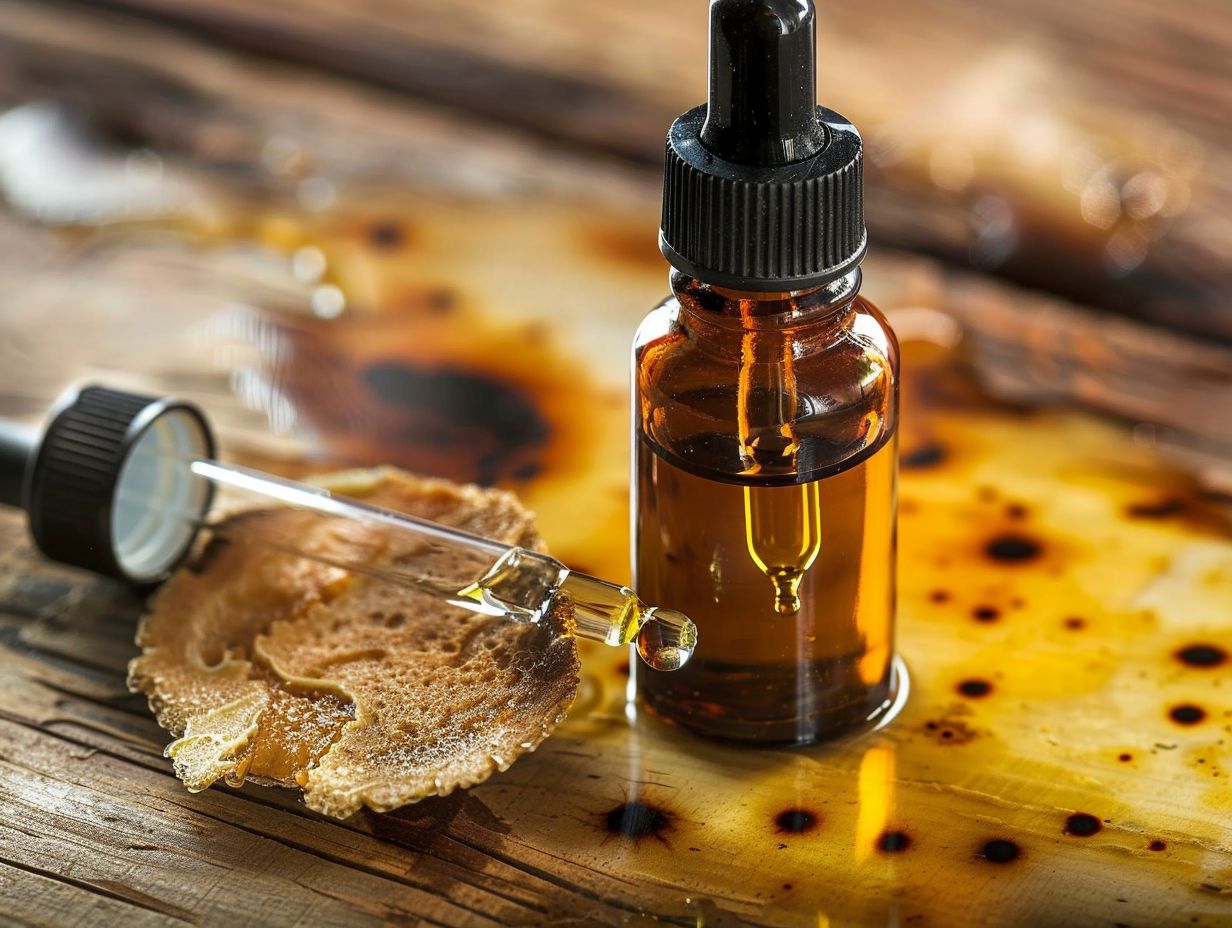
Lemongrass oil is valued for its antimicrobial properties, which can aid in treating ringworm infections. This essential oil offers a refreshing scent and therapeutic benefits for skin health.
Research shows that lemongrass oil contains compounds like citral and limonene, which have potent antifungal properties, making it effective against ringworm-causing fungi. Its anti-inflammatory and soothing effects can help alleviate itching and redness associated with fungal infections. Incorporating lemongrass oil into skincare routines can help maintain skin balance and health, while also providing a natural alternative to conventional antifungal treatments.
Thyme Oil
Thyme oil is praised for its antifungal and antibacterial properties, which can address ringworm symptoms effectively. This essential oil supports skin health and aids in the healing process.
One of the key benefits of thyme oil lies in its potent antimicrobial properties, which help combat the fungi responsible for ringworm infections. Its rich content of compounds like thymol and carvacrol gives it a powerful edge in fighting off these pathogens. Incorporating thyme oil into your skincare routine can provide a natural and effective way to manage ringworm symptoms, thanks to its ability to soothe irritation and promote skin regeneration.
Frequently Asked Questions
Can essential oils effectively treat ringworm?
Yes, essential oils have been shown to have antifungal properties that can effectively treat ringworm infections.
Which essential oils are best for treating ringworm?
Tea tree oil, oregano oil, and lavender oil are all known for their antifungal properties and can be effective in treating ringworm.
How do I use essential oils to treat ringworm?
Essential oils can be applied topically to the affected area, diluted with a carrier oil, or used in a diffuser to help fight the fungal infection.
Are essential oils safe to use on ringworm?
Yes, essential oils are generally safe to use on ringworm. However, it is important to properly dilute the oils and do a patch test first to avoid any potential irritation.
How long does it take for essential oils to treat ringworm?
The time it takes for essential oils to treat ringworm can vary depending on the severity of the infection and individual response. It is important to continue treatment until the infection is completely gone.
Can essential oils be used as a standalone treatment for ringworm?
While essential oils can be effective in treating ringworm, it is important to also consult with a healthcare professional and use traditional antifungal medications as needed for a comprehensive treatment plan.

